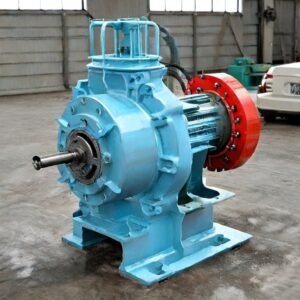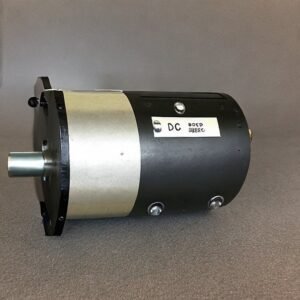Main application differences between AC and DC motors
AC (alternating current) and DC (direct current) motors have different applications based on their respective characteristics. Here are some of the main differences in their applications:
- Speed control: DC motors are better suited for speed control, which is important in applications such as robotics, conveyor belts, and drilling machines. AC motors can be controlled using frequency drives, but they tend to be less efficient than DC motors.
- Power consumption: AC motors tend to consume less power than DC motors, making them more suitable for applications where energy efficiency is a key consideration.
- Torque: DC motors typically provide higher torque at low speeds, making them better suited for applications such as cranes, elevators, and winches.
- Cost: In general, AC motors tend to be less expensive than DC motors, especially for smaller sizes.
- Maintenance: AC motors tend to require less maintenance than DC motors, which typically have brushes that need to be replaced periodically.
- Size and weight: DC motors tend to be smaller and lighter than AC motors, making them more suitable for applications where space and weight are limited, such as in mobile robotics.
The choice between AC and DC motors depends on the specific application and the performance characteristics required. Overall, both motors have a wide range of applications in various industries and fields, some of which are listed below:
AC Motor Applications

- Industrial machinery: AC motors are commonly used in various industrial machines such as pumps, fans, compressors, and conveyors.
- HVAC systems: Heating, ventilation, and air conditioning (HVAC) systems use AC motors to power their blowers and fans.
- Household appliances: Widely used in many household appliances, such as refrigerators, washing machines, and air conditioners.
- Electric vehicles: Some electric vehicles use AC motors to power their drive systems.
- Medical equipment: AC motors are used in various medical equipment such as MRI machines and X-ray machines.
DC Motor Applications

- Robotics: DC motors are commonly used in robotics applications, including mobile robots, robotic arms, and grippers.
- Electric vehicles: Many electric vehicles use DC motors to power their drive systems.
- Industrial machinery: DC motors are used in various industrial machines such as conveyors, mixers, and hoists.
- Computer peripherals: DC motors are used in computer peripherals such as printers and scanners.
- Home appliances: DC motors are used in various home appliances such as vacuum cleaners and electric shavers.
- Medical equipment: DC motors are used in various medical equipment such as dental drills and surgical tools.
- Toys: DC motors are commonly used in various toys such as remote-controlled cars and airplanes.
Thank you for this informative article on Electric Motors